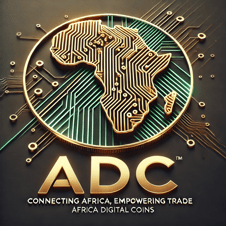Africa Digital Coins (ADC)

Practical Training (3 Days)
Price: £775.00
Training to be held in Accra - Ghana
Scope: This course is designed for universities, academic institutions, and researchers, focusing on theoretical and applied research in digital currency and blockchain.
Educational Institutions (3 Days): Academic Training for Universities and Research
Day 1: Academic Introduction to Digital Currency
1. The Economics of Digital Currency: Understanding the macroeconomic implications of digital currencies in global and African markets.
2. Blockchain: Theoretical Foundations: Exploring the foundational principles of blockchain, including decentralisation and consensus algorithms.
3. Digital Currency in the African Context: How digital currencies can support sustainable development and economic inclusion in Africa.
4. Research Trends in Blockchain Technology: Current research topics in blockchain and digital currencies globally.
5. Developing Digital Currency Curriculums: How universities can create courses that educate the next generation of blockchain professionals.
6. Impact of Digital Currency on International Trade: Studying the effects of digital currencies on cross-border trade and remittances.
7. Real-World Case Studies for Students: Using real-world digital currency projects as case studies for academic exploration.
Day 2: Advanced Technology and Innovation
1. Blockchain Development for Researchers: Deep-dive into the technical aspects of blockchain and smart contract development for academic research.
2. Cryptography in Blockchain: Studying the role of cryptography in securing transactions and ensuring privacy.
3. Tokenomics and Decentralised Finance (DeFi): Understanding how token economies work and their implications for financial innovation.
4. Industry-Academia Collaboration in Blockchain: How educational institutions can partner with industries to innovate using blockchain.
5. Blockchain’s Impact on Data Privacy: Exploring the legal and ethical considerations of blockchain’s use in data storage and sharing.
6. Developing Prototypes for Research: Building blockchain prototypes and use cases as part of academic research projects.
7. Innovative Use Cases in Africa: Research cutting-edge blockchain applications for African industries, such as agriculture, finance, and healthcare.
Day 3: Practical Applications in Academia
1. Creating a Blockchain Lab in Universities: How universities can set up labs for blockchain experimentation and learning.
2. Developing Blockchain Solutions for Local Problems: Engaging students to build blockchain solutions that address African challenges.
3. Cybersecurity in Blockchain Research: Exploring security challenges in blockchain and how students can contribute to developing safer systems.
4. Blockchain in Social Sciences: Studying the societal impacts of blockchain, including governance, trust, and privacy.
5. Interdisciplinary Approaches to Blockchain Research: Collaborating between departments like computer science, economics, and law.
6. Academic Conferences on Blockchain: How institutions can host or participate in global conferences dedicated to blockchain and digital currencies.
7. Fostering Future Blockchain Experts: Strategies for nurturing academic talent and preparing students for a career in blockchain technology.
Contact Us
Email: info@africadigitalcoins.com
Subscribe
Connect with Us
Office Tel: +44-208-145-3355
Address: Ability House, 121 Brooker Road, Waltham Abbey, EN9 1JH, United Kingdom
Copyright © 2025. All rights reserved. Africa Investment House (AIH) Limited trading as Africa Digital Coins
